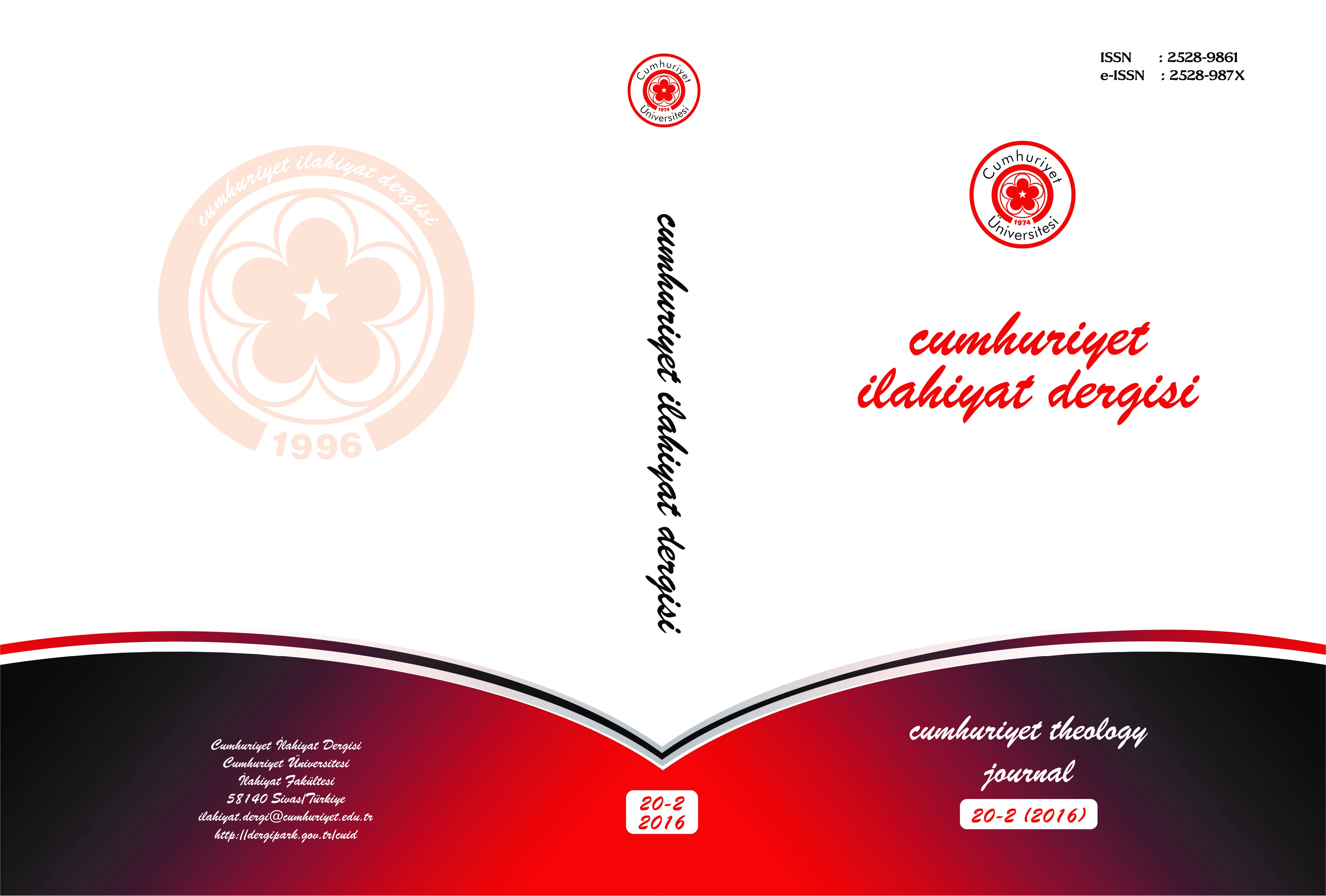Modern Dönem Nesih Tartışmaları ve İbn Kesîr’in Neshe Yaklaşımı
Discussions of Naskh (Abrogation) in Modern Studies and Ibn Kathīr’s Perception of Naskh
Author(s): Melek Altıntaş YılmazSubject(s): Islam studies, Religion and science
Published by: Cumhuriyet Üniversitesi İlahyat Fakültesi
Keywords: Ibn Kathīr; Naskh; Tafsīr; Ta’wīl; Nāsikh; Mansūkh; Ibn Kathīr; Mansūkh;
Summary/Abstract: Abrogation (naskh) is one of the controversial themes of Islamic studies, especially in later period that of principle of exegesis (uṣūl al-tafsīr). However, the recent studies on abrogation (naskh) do not offer a comprehensive analysis on the concept. In fact, the problem of naskh (abrogation) is in need of a systematic and holistic approach, which would only be possible with a detailed study on how the concept of abrogation (naskh) is understood in Islamic interpretive tradition (tafsīr). With this purpose in mind, this article intends to examine two points regarding the term abrogation: first, the article will offer a analytical reflection on the diverse views of naskh, and then it will highlight how Ibn Kathīr (d. 1373) understood and applied this term to his hermeneutical framework. By doing so, the present study aims to show Ibn Kathīr’s position in Islamic interpretive tradition on the matter of naskh. The key conclusion of this study is that although Ibn Kathīr is one of the representatives of the traditional riwayah (sound transmission through a chain of exegetes) exegesis, he advances his interpretive hermeneutics with multiple aspects that also involves dirayah (personal opinion) exegesis (tafsīr).
Journal: Cumhuriyet İlahiyat Dergisi
- Issue Year: 20/2016
- Issue No: 2
- Page Range: 349 - 383
- Page Count: 25
- Language: Turkish

